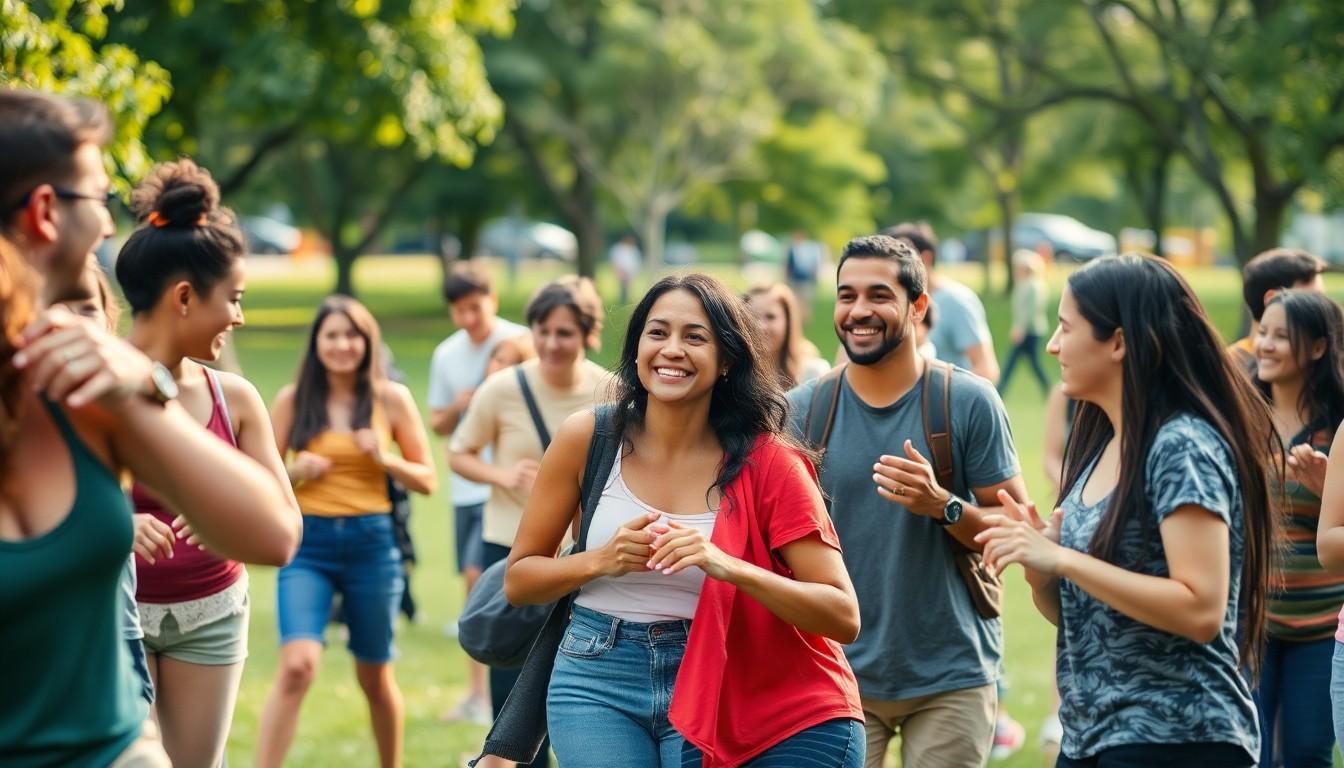Imagine trying to join a game of soccer while gasping for breath after a short sprint. Not exactly the social butterfly moment one hopes for, right? Poor physical health doesn’t just keep you off the field; it can also create barriers in friendships and social interactions. When energy levels plummet and mobility becomes a chore, the chance to connect with others takes a nosedive too.
Social health thrives on engagement, laughter, and shared experiences. But when physical health falters, those opportunities shrink faster than a balloon at a pin party. Whether it’s skipping out on a weekend hike or missing a friend’s birthday bash, the ripple effects can leave one feeling isolated and disconnected. Understanding this connection can help anyone take charge of their health and social life, unlocking a world of vibrant relationships and joyful moments.
Understanding Physical Health
Physical health encompasses the overall well-being of the body, including fitness levels, nutrition, and absence of illness. This state plays a crucial role in how individuals engage with the world around them.
Definition of Physical Health
Physical health refers to the body’s ability to perform daily activities without experiencing pain or discomfort. It includes factors such as cardiovascular fitness, strength, flexibility, and body composition. Maintaining a balanced diet, exercising regularly, and avoiding harmful substances contribute to this definition. Recognizing symptoms like fatigue or persistent pain indicates areas needing attention to improve physical health.
Importance of Physical Health
Physical health significantly influences overall quality of life. Improved energy levels facilitate participation in social interactions, enhancing relationships. Regular exercise fosters stronger immunity, reducing illness impact on social lives. Furthermore, good physical health often leads to positive mental clarity, motivating individuals to engage actively with others. Communities thrive on individuals’ health, resulting in vibrant social networks and fulfilling connections. Prioritizing physical health supports emotional resilience, allowing for better response to life’s challenges.
The Connection Between Physical and Social Health

Poor physical health directly impacts social engagement. Reduced energy and mobility limit opportunities for interaction, leading to feelings of isolation. When individuals experience health issues, participation in activities often decreases, which affects social connections. The ability to join social gatherings can diminish with declining fitness levels or chronic conditions. Engaging in exercise boosts physical well-being, enhancing the capacity for meaningful social experiences.
How Physical Health Influences Social Interactions
Physical health significantly affects social interactions. Individuals with strong fitness levels often exhibit higher confidence, allowing for more active participation in social events. Reduced mobility or chronic pain discourages individuals from attending social gatherings, leading to withdrawal. Increased physical activity fosters a sense of community, as shared experiences strengthen relationships. Additionally, regular exercise promotes a positive mindset, making individuals more approachable in social settings.
The Role of Physical Appearance in Social Situations
Physical appearance plays a crucial role in social scenarios. Positive physical health often correlates with a favorable appearance, impacting first impressions. Individuals who feel better about their health typically project confidence and approachability. Conversely, poor health can lead to self-consciousness about one’s appearance, hindering social interactions. Confidence stemming from good physical health encourages individuals to engage more freely with others, building stronger social networks.
Consequences of Poor Physical Health on Social Health
Poor physical health significantly impacts social health. It can lead to restricted social participation and community engagement.
Social Isolation and Withdrawal
Social isolation often stems from poor physical health. Individuals experiencing fatigue and mobility issues may refrain from attending gatherings or events. Withdrawal from social activities becomes common as pain or discomfort increases. Limited mobility constricts opportunities for connection, reinforcing feelings of loneliness. When physical capabilities decline, individuals may feel misunderstood and disconnected. Isolation intensifies over time, leading to a cycle where poor physical health exacerbates emotional distress. Various studies show that social engagement is vital for mental well-being. Individuals who choose to withdraw miss out on supportive relationships that could enhance their quality of life.
Impacts on Relationships and Communication
Relationships suffer when physical health declines. Poor energy levels can inhibit active communication and participation in conversations. Individuals might find it challenging to initiate or sustain meaningful dialogues with friends, family, and acquaintances. Trust and understanding often erode when one party cannot consistently engage, weakening bonds over time. Additionally, those dealing with chronic health issues may rely on their loved ones for support, placing strain on relationships. Miscommunication may arise, as limitations lead to frustration or misunderstanding. Healthy social networks usually depend on shared experiences, which may dwindle due to physical limitations. Strengthening social health requires acknowledging these dynamics and prioritizing interaction in meaningful ways.
Strategies to Enhance Physical Health for Better Social Connections
Improving physical health plays a crucial role in fostering better social connections. By adopting certain strategies, individuals can boost their overall wellbeing and enhance their social life.
Lifestyle Changes for Improved Physical Health
Regular exercise, such as walking or swimming, promotes cardiovascular fitness and overall vitality. Engaging in a balanced diet rich in fruits, vegetables, and whole grains supports energy levels and physical appearance. Staying adequately hydrated ensures the body’s optimal functioning, enhancing both mental clarity and physical performance. Prioritizing sufficient sleep aids in recovery and energy restoration, essential for social interactions. Incorporating daily movement, like stretching or yoga, can improve flexibility and reduce discomfort. Each of these lifestyle shifts contributes significantly to a more active and engaging social life.
Building a Supportive Social Network
Creating a supportive social network encourages accountability and motivation. Joining fitness groups or community classes offers both physical activity and social interaction. Maintaining regular contact with friends and family fosters connections, regardless of physical limitations. Utilizing social media can help individuals connect with like-minded people, expanding opportunities for engagement. Seeking out local clubs or organizations provides chances to meet new individuals who share interests. An active social network strengthens relationships and enhances mental wellbeing, creating a positive feedback loop that encourages a healthier lifestyle.
Poor physical health can significantly hinder social interactions and relationships. When individuals struggle with energy levels and mobility, they often miss out on valuable opportunities for connection. This not only leads to feelings of isolation but can also create a cycle where social withdrawal worsens physical and emotional well-being.
By prioritizing physical health through regular exercise and a balanced diet, individuals can enhance their social engagement. Building a supportive network and actively participating in community activities can foster meaningful connections. Recognizing the interplay between physical and social health is essential for cultivating vibrant relationships and enriching life experiences.
